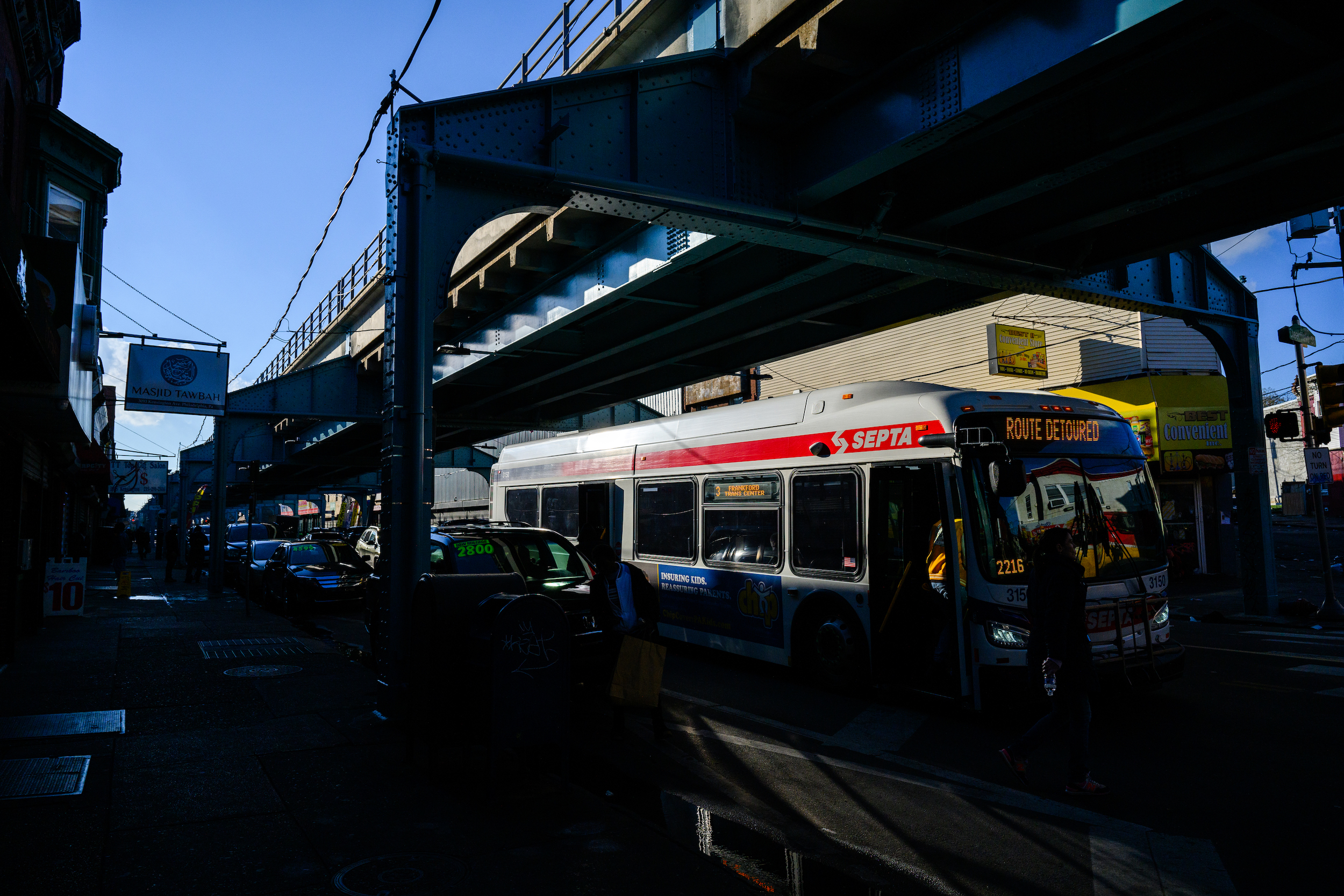In October 2023, as gun violence in Philadelphia was starting to decline, retired military veteran Bernard N. Gribbin, 48, became the first city transit operator to die from gunfire while working. A 21-year-old female passenger shot him multiple times in the neck and torso after she stepped off his bus in the city’s Germantown neighborhood. The police quickly apprehended her, and she’s awaiting trial.
Gribbin’s death was a stark reminder of the city’s enduring gun violence problem. Now, it’s fueling change: The city transit authority recently announced that Philly will install bulletproof glass compartments on some of its buses to protect its drivers, becoming the nation’s first big city to do so.
The safety upgrade came along with a new agreement between the Southeastern Pennsylvania Transit Authority (SEPTA), and TWU Local 234, the union that represents 5,300 city bus drivers and other transit employees. After a narrowly averted strike, both parties shook hands on a one-year contract that will give union workers a 5 percent raise. Union members voted to approve the contract on Dec. 6.
Safety on the city’s transit system has long been a concern to its drivers and the public. In January, TWU Local 234 President Brian Pollitt told The Trace that his union had started advocating for the bulletproof enclosures, and for the deployment of National Guard members to subway station platforms.
“Things have really gotten bad within the last five years, and it’s getting worse,” he said, adding that people facing housing and mental health crises have “taken over” the transit system. “Most in that community are in dire straits and have nothing to lose.”
SEPTA spokesperson Andrew Busch says the move shows the agency is listening. “We’ve been very serious about addressing crime and disorder and the issues that have been raised by our frontline employees,” he said.
Other cities have also explored protecting drivers this way, including Los Angeles, where an armed hijacking of a city bus in March prompted the drivers’ national union to call for full bulletproof enclosures and armed security officers. They also sought felony-level charges that carry longer jail sentences for those who assault drivers, silent alarms to alert the police to shootings, and emergency exits for drivers.
“We are facing a national epidemic of bus and transit assaults, and the only way we can address it is through immediate action by transportation agencies on these common-sense measures,” Jeremy Ferguson, president of the Transportation Division of the International Association of Sheet Metal, Air, Rail and Transportation Workers, said in March. “Our drivers should never have to worry about a physical confrontation.”
The decision to provide bulletproof enclosures for Philadelphia’s bus drivers came after a state bill bearing Gribbin’s name failed to make it out of the Senate’s Transportation Committee during this fall’s legislative session. The measure would have strengthened penalties for assaults committed against public transit operators.
Philly will begin with a pilot program at first, with eight of SEPTA’s 1,400 city buses getting fitted with protective glass compartments starting in the new year. After that, Busch said, a yet-to-be-determined number of additional buses will be added. The pilot, he said, will enable SEPTA to scale up quickly because the agency will know exactly what size plexiglass to order for each bus.
“We moved to design and install plexiglas doors for bus and trolley operators at the start of the pandemic, and that was done across a majority of the fleet in about six months. The bulletproof shields may not be done that fast, but we have in-house engineering, maintenance, and mechanical staff who have experience in expediting these types of retrofits once the plans are set,” Busch said.
The move won praise from Philadelphia City Councilmember Mike Driscoll, chair of the Transportation and Utilities Committee. “Installing bulletproof glass enclosures on buses is another tool that can provide protection, and we expect SEPTA and its transit workers will work together and evaluate its impact,” Driscoll said.
Compared to last year, Busch said overall crime is down on and around SEPTA property and vehicles, mirroring the decline in violence the city has experienced over all. Violent crimes — homicide, rape, robbery, and aggravated assault — are down 38.4 percent over this time last year, while criminal assaults on employees are down 40 percent, according to SEPTA data.
SEPTA started the year short-staffed, but Busch said SEPTA has closed a vacancy gap and now has the 240 transit police officers it is budgeted to have. The police department has been authorized to add an additional 20 officers over budget by the end of the current fiscal year, June 30, he added.
“It certainly has taken some time to get a handle on some of those issues, but we have made a lot of progress,” Busch said, “and we have seen our crime numbers come down across the board.”

The Trace’s reporting in Philadelphia is a part of the Every Voice, Every Vote project and supported as well by the Comcast NBCUniversal Foundation, The Lenfest Institute for Journalism, the Neubauer Family Foundation, and the William Penn Foundation. You can read more about The Trace’s Philadelphia supporters here, and read our editorial independence policy here.

